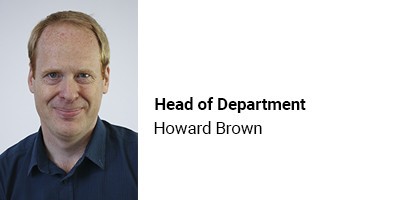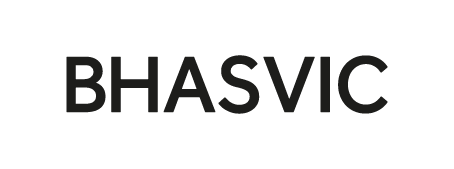Classical Civilisation A Level
Qualification: GCE A Level in Classical Civilisation
Exam Board & Specification Code: OCR; H408; Specification
Course Entry Requirements: 4 in English Language GCSE. You may study Classical Civilisation and another History course if you wish.
Please make sure that you have understood the overall entry requirements to study at BHASVIC. These are available here and outline the GCSE grades you need to take up one of the Study Programmes at the college.
Length and size of qualification: 2 year single course
Timetable hours: 4.5 hours per week
Assessment method: 3 exams of varying lengths
BHASVIC Department: Humanities
What will I study?
Classical Civilisation is a fascinating subject which fosters an understanding of ancient Greece and Rome. This allows for a greater understanding of our own culture and civilisation, which owes so much to Greece and Rome. Democracy, justice, empire and conflict are just some of the many concepts that will underpin your study. You will learn about some of the greatest figures in world history such as the heroic figures of Homer’s epics: Odysseus, Achilles, Hector, Aeneas and Helen of Troy. You will also be introduced to some of the major political figures including Julius Caesar, Cicero, Pompey, Themistocles, Xerxes and Leonidas. Students will also learn about some of the great battles of the past such as Thermopylae, Salamis and Troy. The vibrant works of Homer, Cicero, Virgil and Herodotus are our starting point to investigate the beliefs, history, myth and society of antiquity. You will study ancient epic, history, drama and politics.
Is this course right for me?
Do you love ancient history? Do you enjoy ancient myths and legends? Do you spend a lot of your free time reading? Did you enjoy watching films set in the ancient world like 300, Pompeii, Rome or Clash of the Titans? All of these would be an advantage to students taking the subject. Students will succeed best on this course if they are self-motivated and independent learners willing to share their ideas, and participate in discussions, debates and seminars. Students need to be able to structure well-balanced arguments in essay-style questions. It presupposes no knowledge of ancient languages and will appeal to anyone interested in the ancient past. Texts are studied in English translation and you are assessed entirely by examination. It combines especially well with all humanities, language and literature courses and is supported by study visits abroad.
Where next?
Classical Civilisation is a well-respected qualification that enables you to study a mixture of classics, history and literature. It develops a wide range of skills that are transferable to further study or the workplace such as analytical skills, communication, critical evaluation, cultural awareness and assessing and interpreting information. Students move on to a range of roles; examples might be Chartered Accountant, Civil Service employee, Heritage Manager, Market Researcher, Curator and Journalist. Apprenticeship routes are available in a variety of sectors, not only in the cultural and heritage sector. Useful websites to research careers and wider progression options could include Prospects, Museum and Heritage websites, All About Careers and The Apprenticeship Guide.
Apply View DepartmentHigher Education - Classics
Last year, 25 BHASVIC students went onto study Classics-related degrees at 11 different universities
This included 6 students going onto study Archaeology. It is popular combined with other subjects including English, History and History of Art. Last year 33% of our A2 Classics students went on to study the subject at degree level. Popular universities for our students included Bristol, Durham, UEA, York, Kings College and Manchester.
Should I study Classics at degree level?
As a humanities subject, there are about 10 hours of contact time per week, with a mix of lectures and seminars. The content varies over the optional modules, but is usually challenging and engaging. Modules typically include Latin & Greek, History of thought, Comedy, The ancient novel, Greek tragedy, Emotions in the ancient world, Metamorphosis in Greece and Rome, Sex and the symposium: Athenian painted pottery, Greeks on being good (and evil). The average contact time is around 10 hours a week which varies vary from university to university.
You can choose to study Classics or a closely related subject, for example
· Ancient History
· Archaeology
· Classical Civilisation
· Egyptology
· A combined degree with a range of subjects
Entry Requirements
A-levels (or equivalent) useful to have: History, English literature, Modern foreign language, Classical Civilisation.
Top Universities for Classics
Cambridge, Oxford, St Andrews, Durham, Exeter Warwick, Glasgow, Edinburgh, Roehampton – all very high student satisfaction scores Birmingham, Bristol, Kent, Royal Holloway - all with top graduate prospects
Many of our students choose a combined degree - applications from our students have included
· Ancient, Medieval and Modern History
· Classical Civilisation and Philosophy
· Egyptology
Example entry requirements (please check):
A-Level/BTEC equivalents:
Newcastle/ ABB Bristol/BBC Reading/ BBB Nottingham (foundation)/CDD
Why not explore studying in English abroad?
Classics and Ancient Civilizations University of Amsterdam
Some examples of Classics-related degrees that our BHASVIC students have gone onto study in the past few years are:
· Ancient World with a Year Abroad
· Ancient, Medieval and Modern History
· Anthropology and Archaeology
· Archaeology and Ancient Civilisations
· Classical Archaeology and Ancient History
· Classical and Archaeological Studies
· Classical Civilisation and Philosophy
· Egyptology Classical Studies Classics
· Historical Archaeology
· History and Ancient History
· Modern Languages and Classical Studies
Classics is a useful subject for careers including:
- Chartered accountant
- Civil Service
- Editorial assistant
- Market researcher
- Newspaper journalist
- Public relations account executive
- Secondary school teacher
- Museum Curator
- Heritage Manager
- Gallery Worker
Career Prospects
Those who did go into work specifically related to Classics found careers working in education, marketing or the finance industry. Transferable skills you can gain from a Classics degree include communication, critical evaluation, time management and research and analysis skills. Employers who recruited classic students last year included publishers, the Civil Service, market researchers, political advisory and lobbying organisations, schools, universities, the IT industry and the arts.
Local Market Information
Working in British Intelligence
MI5 and MI6 have an ongoing recruitment drive. There are also opportunities to work in a technical role at GCHQ.
Examples of apprenticeships and opportunities include:
- Visitor Experience Assistant London
- In House Journalist Brighton
- Digital Information Assistant Shoreham
- Library Assistant BSUH NHS Trust
How BHASVIC helps: We have an excellent Careers Hub and careers advisors who are available for appointments through student services. Local jobs are advertised and they will advise on skills and specialist areas such as degree apprenticeships. Students can choose an appropriate pathway for them in the second year from UCAS, Employability & Enterprise, Visual Arts, Oxbridge and Medics. Our Spring Futures Fair brings in a huge number of careers & apprenticeship visitors with workshops and information stands and departments will bring speakers in around the subject area.
Studying Classics develops your intellectual flexibility and analytical thinking skills.
You will gain many transferable skills studying Classics that will be valued in the workplace including:
Gathering / analysing information from different sources, exploring different perspectives, developing informed views, presentation skills, constructing arguments, meeting deadlines.
Local Skills
The Local Skills agenda considers job prospects and employment in our local area of Sussex. Many of our students will contribute to the National Skills agenda and go onto find a career in a wide range of sectors for students in Sussex our local skills are identified as the following sectors:
- Construction
- Creative & Cultural
- Digital (includes IT and Technology)
- Engineering & Manufacturing
- Healthcare (includes Bio Life Sciences and Pharmaceutical)
- Visitor & Hospitality
- Land-based (includes Agriculture and Viticulture)
- Green Skills
Degree choices that BHASVIC students have gone onto study in the past few years that match the Local Skills agenda for Visitor/Culture and Arts include:
|
|
|
|
|
|
|
|
Career choices that BHASVIC students have gone onto study in the past few years that match the Local Skills agenda for Visitor/Culture and Arts include:
|
|
|
|
|
How BHASVIC helps: Skills Week in A1 helps students build skills in the workplace and a focus on developing skills through tutorial in A1 and A2 supports students in writing outstanding Personal Statements and CVs. We know our students have already gained a wide variety of skills at home and with extra-curricular activities and will increasingly take up jobs. Our focus is on supporting them to evidence skills already gained, identify gaps and ensure that they transfer that to CVs and applications. This is in partnership with every curriculum area.
